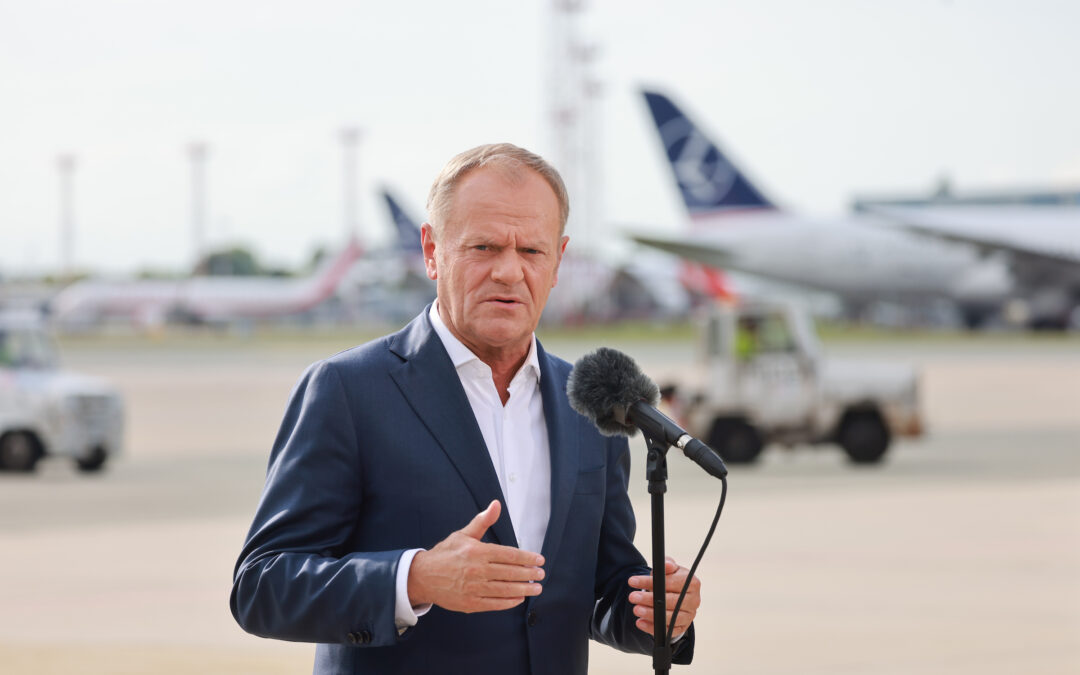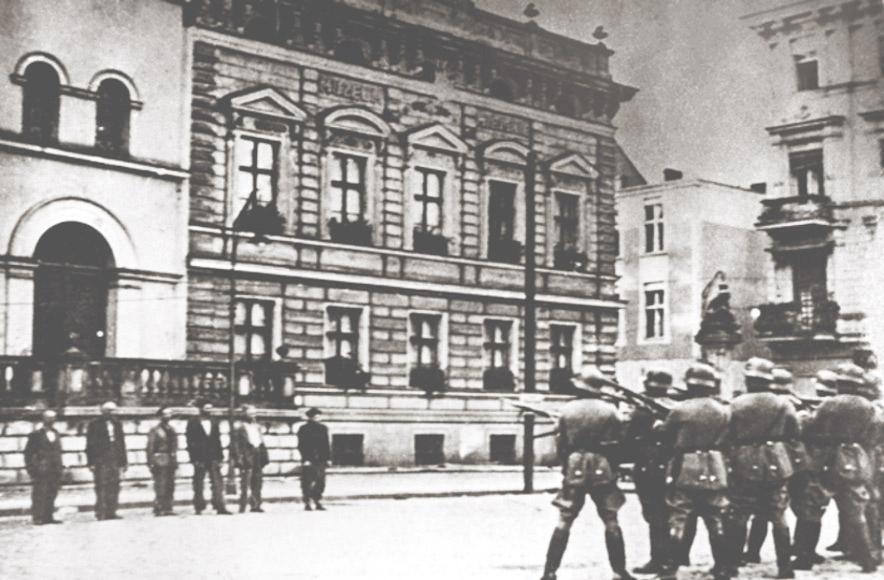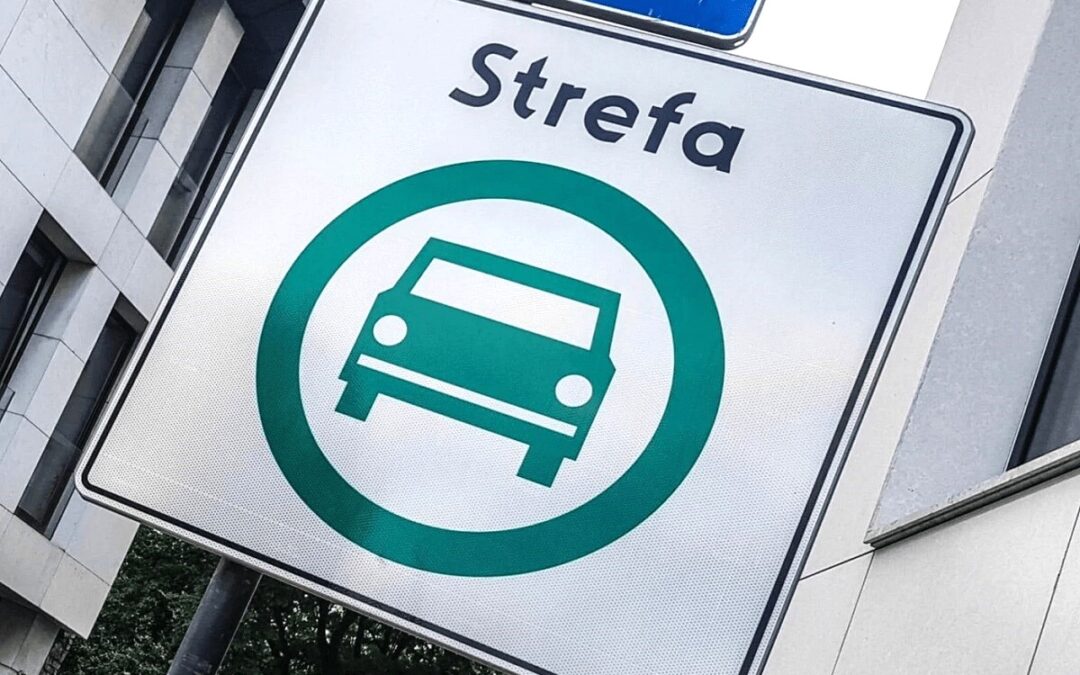Prime Minister Donald Tusk has confirmed that a planned “mega-airport” in central Poland, which was a flagship project of the former ruling Law and Justice (PiS) party, will go ahead. The decision ends months of uncertainty over the plans following December’s change of government.
However, Tusk also accused PiS of wasteful spending on the project and said that the new government would place greater emphasis on developing regional rail, road and air infrastructure to make Poland “one big megalopolis”.
"Będzie to najnowocześniejsze lotnisko w Europie". Tusk ogłasza finalną decyzję ws. CPK#300POLITYKALIVE https://t.co/7PVBICF3wo
— 300Polityka (@300polityka) June 26, 2024
In July last year, when PiS was still in power, a design concept for the Solidarity Transport Hub (CPK) project was unveiled. In October, an international consortium of investment partners, who will contribute up to 8 billion zloty (€1.84 billion) in exchange for a minority stake, was announced.
However, after Tusk’s government came to power, it fired the CEO of CPK and announced that it would conduct an audit before confirming whether and how the project would continue. Some senior figures in the new government had suggested that the planned airport should be abandoned.
But there were also supporters of the project within the ruling camp. Meanwhile in May, a group of leading Polish business figures called on the government not to abandon CPK, which they said could “become a great driving force of the Polish economy”.
A group of leading Polish business figures have appealed to the government not to abandon its predecessors' plans for a new “mega-airport” and transport hub near Warsaw.
They say that the project can “become a great driving force of the Polish economy” https://t.co/ogOn1tyJhk
— Notes from Poland 🇵🇱 (@notesfrompoland) May 4, 2024
Speaking today, Tusk said that before making a decision he had “wanted to have a full picture of what Poland needs and what dreams correspond to these Polish needs, and not whose political orders they should fulfil”.
The prime minister then confirmed that the airport element of CPK, located between Warsaw and Łódź, will go ahead. “We will build the most modern airport in Europe,” he declared. However, he added that a realistic aim for annual passenger numbers would be 34 million.
When PiS first outlined plans for CPK, it declared an aim of 100 million passengers annually, which would have made it one of the busiest airports in the world. That was later scaled back to an initial target of 40 million with the option to scale up to 50 million, then 65 million and eventually even 100 million.
Plans to build a new "mega-airport" in Poland, a flagship project of the former ruling party, have been put on hold by the new government.@jacek_plaza looks at the economic and political arguments surrounding the project, and whether it will go ahead https://t.co/a36GcUNRwl
— Notes from Poland 🇵🇱 (@notesfrompoland) February 12, 2024
In his announcement today, Tusk said that the government would now place greater emphasis on connecting the whole of Poland to modern transport infrastructure.
“Poland will become one big megalopolis,” said Tusk. He outlined an aim of making it possible to travel by rail “between the capital and all major urban centres in 100 minutes or less”. His plans envision Warsaw, rather than CPK, being the rail hub.
PiS’s plans were for CPK to be not just an airport, but also a rail and road hub. Tusk, however, said that the PiS government had failed to put those ideas into practice. He pointed to a planned rail tunnel beneath central Łódź, which was supposed to be completed by 2022 but has been hit by construction delays and rising costs.
Speaking alongside Tusk, Maciej Lasek, the government’s plenipotentiary for the CPK project, said that the cost of its air and rail elements would be 131 billion zloty (€30.4 billion), which he said was lower than the 155 billion zloty planned by PiS.
🚄 #Polska100minut to szybkie połączenia kolejowe!
Między stolicą a największymi polskimi miastami podróżować będziemy mniej niż 100 minut! pic.twitter.com/Qla3CvvcyM
— Kancelaria Premiera (@PremierRP) June 26, 2024
The prime minister also pledged to maintain Poland’s network of smaller regional airports, which some had feared would be overshadowed by CPK.
This, said Tusk, will include “quickly expanding and modernising Modlin” airport to make it a hub for “popular, low-cost airlines” and to better connect it by rail and road to the centre of Warsaw.
Okęcie, Warsaw’s main airport, which had been scheduled to close once CPK opened, will also be “urgently modernised and improved”, said Tusk, who noted that the airport at CPK will not be ready until 2032.
Once the CPK airport is operational, “the future of [Okęcie] will be decided, added the prime minister, who suggested it could continue to function as an “air transport centre” for drones.
Poland’s rail network may be better than western Europe's within 20 years and could be the most modern on the continent, says the EU’s top transport official.
He also notes Poland will play a key role in integrating Ukraine into the EU's transport system https://t.co/LyWIy7whd4
— Notes from Poland 🇵🇱 (@notesfrompoland) February 19, 2023
Finally, the prime minister also pledged that Poland’s national airline, LOT, would be improved “so that it will become a company more or less on the level of Lufthansa”, Germany’s flag carrier.
Despite Tusk confirming that CPK will go ahead, he faced immediate criticism from his PiS predecessor Mateusz Morawiecki, who accused the government of “rebuilding CPK so that it does not pose a threat to the Germans and Austrians”.
Morawiecki also accused Tusk of returning to his old strategy, from his Civic Platform (PO) party’s previous two terms in power between 2007 and 2015, of focusing only on the development of large cities.
💬Wiceprezes PiS @MorawieckiM: Oni przebudowują tak CPK, aby nie zagroził Niemcom, Austriakom. Jaki ma być obecnie CPK? Megalopolis to powrót do strategii PO z poprzednich rządów – rozwój jedynie wielkich miast. W naszym projekcie CPK miał podnieść bezpieczeństwo Polski. Mamy… pic.twitter.com/TjNRRtt0uU
— Prawo i Sprawiedliwość (@pisorgpl) June 26, 2024

Notes from Poland is run by a small editorial team and published by an independent, non-profit foundation that is funded through donations from our readers. We cannot do what we do without your support.
Main image credit: Kancelaria Premiera/Flickr (under CC BY-NC-ND 2.0)

Daniel Tilles is editor-in-chief of Notes from Poland. He has written on Polish affairs for a wide range of publications, including Foreign Policy, POLITICO Europe, EUobserver and Dziennik Gazeta Prawna.



















